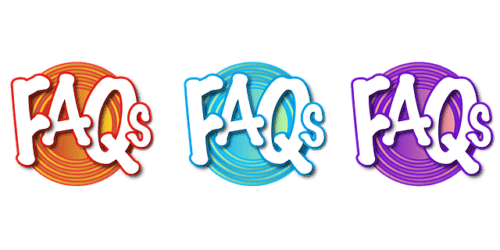The Digital Landscape Evolution Written by...
Read More
Written by Digital Media Zone
Analyzing and Adapting Strategies for SEO Success
Introduction:
In the ever-evolving landscape of digital marketing, search engine optimization (SEO) remains a cornerstone for enhancing online visibility and driving organic traffic.
As search engine algorithms continue to refine their criteria, it’s imperative to not only develop effective SEO strategies but also continually analyze and adapt them to stay ahead of the competition.
In this guide, we will dissect the art of analyzing and adapting SEO strategies to achieve enduring success.

Understanding the SEO Landscape
To successfully navigate the realm of SEO, it’s essential to comprehend the ever-changing landscape. Search engines, particularly Google, employ complex algorithms that consider a multitude of factors when ranking websites.
From keyword relevance to user experience, these algorithms are designed to provide users with the most relevant and valuable results. Therefore, your SEO strategies must encompass a holistic approach that addresses various facets of online presence.
Algorithmic Insights: The Key to Effective SEO
Staying informed about search engine algorithm updates is pivotal. Google’s algorithms, such as Panda, Penguin, and Hummingbird, are designed to refine search results and filter out poor-quality content.
Regularly monitoring these updates and understanding their implications allows you to adapt your strategies accordingly.
Moreover, keeping a finger on the pulse of industry trends and shifts enables you to anticipate changes and adjust your approach proactively.
User Intent: The Heart of SEO
Understanding user intent is the foundation of a successful SEO strategy. Rather than focusing solely on keywords, consider why users are searching for specific terms. Are they seeking information, looking to make a purchase, or comparing options?
Tailoring your content to match user intent not only improves your rankings but also enhances user engagement and conversion rates. Tools like Google’s Keyword Planner and SEMrush can provide valuable insights into user search behavior.
- Regularly monitor keyword rankings, organic traffic, and conversion rates.
- Utilize analytics tools to identify high-performing and under performing content.
- Stay updated on search engine algorithm changes to adjust strategies accordingly.
Mastering this AI app will take Any Business to the Next Level.
Optimizing On-Page SEO
On-page SEO involves optimizing individual web pages to improve their search engine rankings and visibility. It’s a fundamental aspect of any SEO strategy and requires a meticulous approach to various elements on your website.
Title Tags and Meta Descriptions: Your Virtual Billboards
Title tags and meta descriptions are your website’s virtual billboards. Crafting compelling and concise title tags that incorporate relevant keywords can significantly impact your click-through rates.
Likewise, well-written meta descriptions provide a sneak peek into your content and can entice users to explore further. Don’t overlook these elements as they play a crucial role in enhancing your organic click-through rate.
Header Tags: Structuring Your Content
Header tags (H1, H2, H3, etc.) serve as signposts for both users and search engines, helping them understand the hierarchy and structure of your content.
Organize your content using appropriate header tags to create a logical flow. Additionally, incorporating relevant keywords in your headers can reinforce the topical relevance of your content, improving its visibility in search results.
Image Optimization: More Than Meets the Eye
Images contribute to a visually appealing website, but they also impact SEO. Optimizing images involves using descriptive file names, alt text, and compressing them to improve page loading speed.
Remember that search engines can’t “see” images, so providing descriptive alt text allows them to understand the content and context of the images, further enhancing your website’s accessibility and SEO.
Monitoring Backlinks and Off-Page SEO
Off-page SEO focuses on factors outside your website that influence your search engine rankings. Backlinks, social signals, and online mentions all play a role in determining your online authority.
Quality Backlinks: Building a Solid Foundation
Gone are the days of quantity over quality when it comes to backlinks. Acquiring high-quality backlinks from authoritative sources is far more valuable than amassing numerous low-quality ones.
Building relationships within your industry, guest posting on reputable websites, and creating exceptional content are effective ways to earn quality backlinks.
Social Signals and Brand Authority
Engaging with your audience on social media platforms not only boosts brand awareness but also indirectly impacts SEO.
While social signals may not be direct ranking factors, a strong social media presence can lead to increased website traffic and online interactions. Signaling to search engines that your content is valuable and relevant.
Online Brand Mentions: Beyond Backlinks
Brand mentions, even without a direct link, contribute to your online credibility. Search engines monitor these mentions to gauge the reputation of your brand.
Monitoring online discussions and addressing customer feedback can help you manage your online reputation and indirectly enhance your SEO efforts.
- Craft compelling meta titles and descriptions to improve click-through rates.
- Build high-quality backlinks from reputable and relevant websites.
- Engage in guest posting to showcase expertise and expand online visibility.

Embracing SEO Analytics and Adaptation
SEO analysis goes beyond keyword rankings; it involves understanding user behavior, tracking conversions, and adjusting strategies based on data-driven insights.
User Behavior Insights: Delving Deeper
Tools like Google Analytics provide valuable insights into user behavior on your website.
Analyze metrics such as bounce rates, time on page, and click-through rates to understand user engagement.
This data can guide you in identifying areas for improvement and optimizing your website’s user experience.
Conversion Tracking: From Click to Conversion
Conversions are the ultimate goal of any SEO strategy. Whether it’s signing up for a newsletter or making a purchase, tracking conversions allows you to measure the effectiveness of your SEO efforts.
Utilize tools like Google Tag Manager to set up conversion tracking and gain a clear understanding of how users interact with your website.
Mobile Optimization: A Non-Negotiable
In the mobile-dominated era, optimizing your website for mobile devices is non-negotiable. Google’s mobile-first indexing means that your website’s mobile version is considered the primary version for ranking.
Ensure responsive design, fast loading times, and a seamless mobile experience to capture the attention of mobile users and improve your search rankings.
Continuous Adaptation: The SEO Journey
SEO is not a static practice; it’s an ongoing journey. Regularly monitor your SEO performance, track changes in search engine algorithms, and adapt your strategies accordingly. By embracing a mindset of continuous improvement, you can stay ahead of the curve and maintain your competitive edge.
Leveraging Content Strategy for SEO Enhancement
The foundation of successful SEO lies in the quality of your content. Crafting informative, engaging, and relevant content not only attracts users but also satisfies the algorithms’ appetite for valuable information.
In this section, we’ll explore how to develop a content strategy that aligns with SEO goals, resonates with your audience, and positions your brand as an authoritative source.
Keyword research is a critical step in any successful digital marketing strategy. To maximize the visibility and reach of your online content, it’s essential to conduct thorough keyword research to identify relevant and high-traffic keywords.
Conduct thorough keyword research to identify relevant and high-traffic keywords.
This process involves exploring the terms and phrases that your target audience is using to search for products, services, or information related to your industry or niche.
By investing time and effort into comprehensive keyword research, you can gain valuable insights into user behavior, stay ahead of your competitors, and create content that aligns with the interests and needs of your audience.
One of the primary benefits of conducting keyword research is that it allows you to prioritize your content creation efforts. By identifying keywords with high search volumes and low competition, you can focus on producing content that has the potential to rank well in search engine results pages (SERPs).
Additionally, keyword research helps you understand the language and terminology your audience uses, enabling you to craft content that resonates with them on a deeper level. This, in turn, can lead to higher user engagement, longer time spent on your website, and increased conversion rates.
- Identify keywords with high search volumes and low competition for content creation.
- Understand the language and terminology used by your target audience.
- Use keyword research tools like Google Keyword Planner, SEMrush, or Ahrefs.
- Continuously monitor keyword trends and update your keyword list to stay relevant.

Unveiling Technical SEO: Behind-the-Scenes Magic
While content is king, technical SEO forms the backbone that supports your entire website’s structure. From website speed to mobile-friendliness, technical aspects influence user experience and search engine rankings.
Here, we’ll unravel the technical intricacies that impact your site’s SEO performance and guide you through optimizing the technical aspects to ensure a seamless user journey and enhanced visibility.
- Optimize website loading speed to improve user experience and search rankings.
- Ensure mobile responsiveness for a seamless browsing experience across devices.
- Implement structured data markup to enhance search engine understanding of your
Technical SEO is the often-overlooked wizardry that operates behind the curtains of a website, silently but significantly influencing its search engine performance.
Unlike its more visible sibling, on-page SEO, which deals with content optimization and keyword usage, technical SEO focuses on the technical infrastructure and backend aspects of a website to ensure it’s not just accessible but also highly crawlable and indexable by search engines.
It’s the secret sauce that can transform a beautiful website into one that ranks prominently in search results and provides an exceptional user experience.
Tech SEO Key Elements
One of the key elements of technical SEO is website speed and performance optimization. In the era of lightning-fast internet, users expect websites to load in the blink of an eye. Slow-loading pages can lead to high bounce rates and poor user experiences, which in turn affect search engine rankings.
Technical SEO experts delve into various aspects of website performance, such as optimizing images, minimizing server response times, leveraging browser caching, and employing content delivery networks (CDNs) to ensure that a website loads swiftly and efficiently.
Additionally, they conduct thorough site audits to identify and fix issues like broken links, duplicate content, and crawl errors, ensuring that search engine spiders can navigate the site seamlessly.
Technical SEO is indeed the backstage magician that ensures your website is ready to take center stage in the competitive world of online search.
Conclusion:
In the ever-evolving realm of digital marketing, mastering SEO strategies requires a combination of expertise, adaptability, and strategic insight.
By understanding the intricacies of search engine algorithms, tailoring content to user intent, optimizing on-page elements, and embracing the dynamic nature of SEO analytics, you can pave the path to online success.
Remember, SEO is not a one-time effort; it’s a perpetual journey that requires vigilance, creativity, and a commitment to staying informed about industry trends and algorithmic shifts.

FAQ's
Q1: How often should I monitor my SEO performance?
A1: It’s recommended to monitor your SEO performance on a regular basis, at least once a month, to identify trends, areas for improvement, and to adapt your strategies accordingly.
Q2: Can social media impact my SEO rankings?
A2: While social signals are not direct ranking factors, a strong social media presence can indirectly impact SEO by driving website traffic and enhancing your brand’s online authority.
Q3: What is the significance of mobile optimization for SEO?
A3: Mobile optimization is crucial for SEO as Google considers the mobile version of your site for ranking. A seamless mobile experience improves user engagement and search rankings.
Q4: How can I adapt my SEO strategies to algorithm changes?
A4: Stay updated on search engine algorithm updates, monitor your SEO performance regularly, and adjust your strategies based on data-driven insights and industry best practices.

We appreciate you taking the time to read our content.
We hope you found it informative and valuable.
If you enjoyed this article, consider subscribing and following us on social media to stay updated with the latest insights and updates.
Enhance your brand with website business...
Read More
By entering your email, you agree to receive our emails, including marketing emails, in line with our Privacy Policy.







